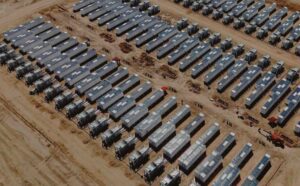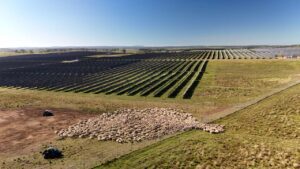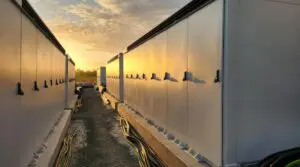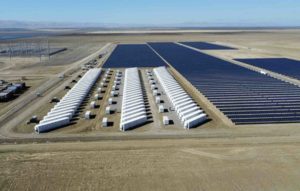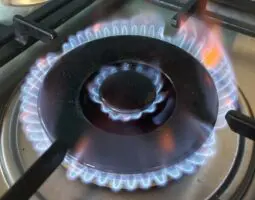Victoria has issued its first round of funding under the beefed-up $42.2 million neighbourhood battery program, and network operator AusNet will take the lion’s share of the projects.
The latest round is funding 25 batteries across six projects, which will share in $6.07 million.
The total storage capacity will be around 4.2 megawatt hours (MWh), with AusNet and its commercial arm Mondo Power winning $5.2 million for 21 batteries.
The first round of the Neighbourhood Battery Program opened in June last year, which aims to fund 100 batteries and was part of an election campaign promise by Victoria Labor in 2022.
It is open to public entities, private businesses and agencies, educational institutions, local government, co-operatives, and not-for-profit organisations and followed the $10.9 million Neighbourhood Battery Initiative.
Neighbourhood batteries are considered to be a key part of Australia’s shift to renewable electricity, sitting somewhere between solar batteries installed behind the meter in households and massive, grid-scale batteries.
Batteries installed on distribution networks aim to soak up excess rooftop solar during the day and shift it into the evening peak, making sure the locally generated power is used locally and sharing it among households that may not be able to install solar themselves.
However, there has been big debate about whether these batteries are best owned by community groups, or by the network companies that will host them.
25 batteries in 20 towns
AusNet won funding for 10 pole-mounted batteries in the state’s east and northeast totalling 850 kilowatt hours (kWh) in storage, costing $300,000 each, to deliver network and community benefits.
It has to co-contribute a minimum of 30 per cent of the project’s cost, unlike the purely community batteries which make up the remainder of the funded projects where the applicants only have to come up with a 10 per cent contibution.
Mondo is doubling down on Phillip Island, where it will deliver the largest project in this funding round with seven 100kW/250kWh batteries delivering 1,750 kWh of storage.
Some of the income from these batteries will be paid out every year to community initiatives worked out by the Bass Coast Shire and community group Totally Renewable Phillip Island (TRPI).
Mondo switched on a 5MW/10MWh lithium-ion phosphate battery energy system in June last year to support the island community through tourism peaks.
Mondo will also own and operate four batteries to be installed at Queenscliff with a total of 1,000 kWh of storage. It will pay an annual dividend which will go towards new renewable projects via the Queenscliffe Climate Action Now group.
Community energy company Indigo Power won funding for a 200 kWh battery at a water treatment plant in Baranduda in Wodonga, which will be connected behind-the-meter to the grid via an existing high-capacity connection point, allowing the battery to operate as a solar soak.
Totally Renewable Yackandandah will install one 200 kWh battery at the Yackandandah Sports Park to boost the proportion of low carbon power in the network each evening, reduce power bills, and support increased solar generation, and offer site backup loads during outages or emergencies.
Yackandandah is no stranger to community batteries, installing its first 274 kWh device in 2021 as it aimed to be completely renewable-powered by 2022.
GV Community Energy won a grant for two batteries, at two not-for-profit sites in Tatura and Wangaratta with total storage of 216 kWh.
The projects must all be finished by August 2025.
“We’re building 100 neighbourhood batteries across Victoria to make sure all families can share the savings from the massive uptake of solar,” said Victoria energy and resources minister Lily D’Ambrosio.
“We’re making Victoria the home of batteries, to deliver storage, to soak-up renewable energy, improve the network, drive down bills and spread the benefits of local renewable energy even further.”


